North Korea the greatest threat to US, China peace: Rand report
RISK of war between China and the US is increasing as the world’s two biggest economies butt heads over the North Korean crisis.
NORTH KOREA remains the greatest risk factor in terms of war breaking out between China and the US, a leading think tank has warned.
In a new report, the RAND Corporation has revealed the chances of the US entering into a military conflict with China have increased.
The California-based group released a report this week, Conflict with China Revisited, which builds on a 2011 report analysing the risk of war between China and the US.
While maintaining the possibility remained low, the new report warns the risk is higher now than in 2011 when the Korean Peninsula, Taiwan, Japan and the South China Sea were all pinpointed as potential causes of conflict between the global superpowers.
Events since then have cemented this conclusion.
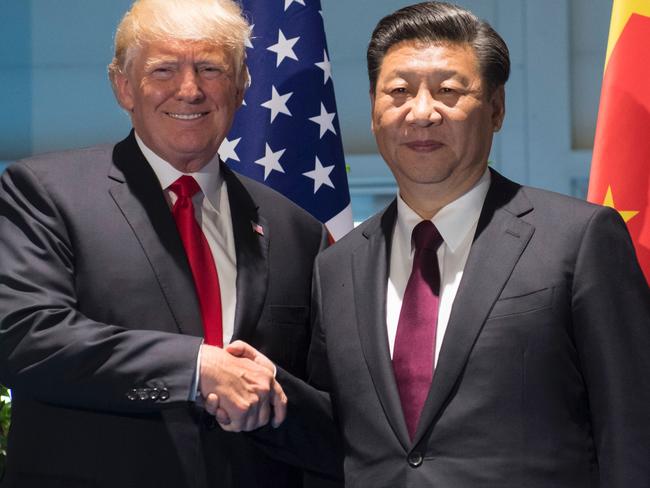
The report highlights how the range and capabilities of Chinese air and sea defences have grown since the 2011 report which in turn makes “the direct defence of US interests in the region potentially more costly”.
Neither side is likely to use nuclear weapons, however RAND warn that even a small localised conflict would cause “considerable damage to both sides”.
Identifying the North Korea nuclear weapons crisis as the greatest threat to peace, the 16-page report suggests that constructive engagement with Beijing sooner rather than later is the only path forward.
US President Donald Trump has repeatedly called on China to do more to stop North Korea’s advancement of its ballistic missile and nuclear program.
Beijing, China’s main ally, has become increasingly frustrated by its rogue neighbour but wants stability on the peninsula at any cost.
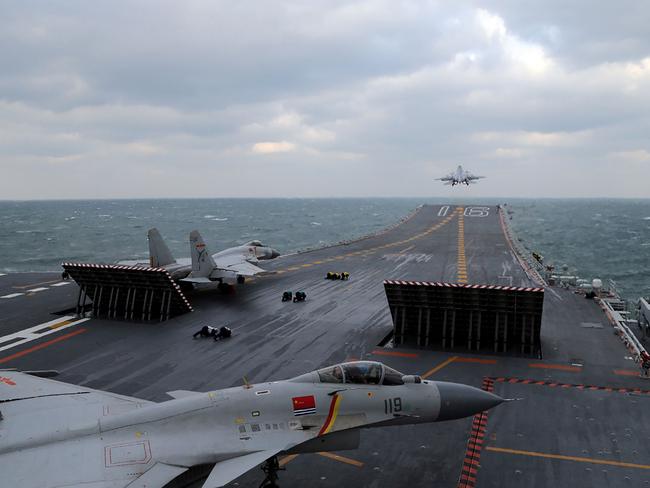
If conflict did break out on the Korean Peninsula, China isn’t necessarily going to come to the defence of the Kim regime.
Instead the report suggests China would look to defend its own self interests in the region.
Under Kim Jong-un, tensions have increased between all alliances increasing the potential for the spiralling of an “unintended escalation into conflict on the peninsula or even a pre-emptive America strike on a North Korean asset”.
US and South Korean forces would look to force North Korean military out of the artillery range of Seoul.
China would likely become involved if South Korean or US forces moved beyond this point.
RAND also speculate the Kim regime is unlikely to suddenly collapse with an improved economy and consolidation of the North Korean leader’s power.
If however, the North Korean regime did collapse, there would be widespread chaos.
Hundreds of thousands of refugees would seek sanctuary and the security of North Korea’s nuclear and ballistic missiles would be under threat, the report warns.
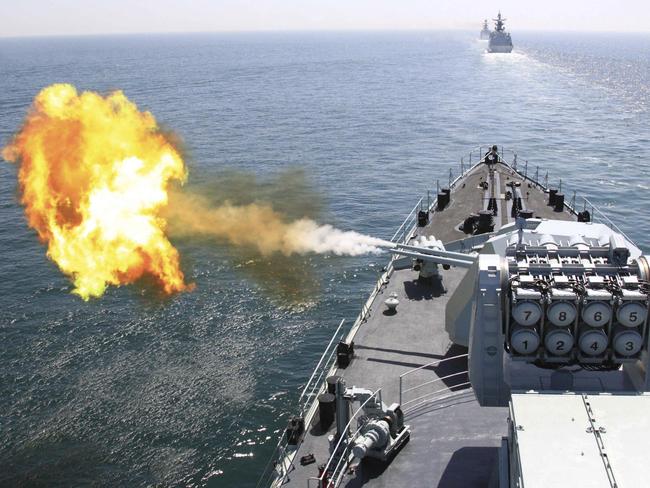
The Korean People’s Army’s long-range artillery threat to Seoul would be an immediate operational concern and US and South Korea forces would have to quickly demobilise it.
“China meanwhile, would view the insertion of US and South Korean Forces north of the Korean Demilitarised Zone with concern and likely to move its own forces in ... to prevent a US takeover of the entire country” the report said.
The likelihood of confrontation, accidental or otherwise, would remain high.
The report also suggests the US focus on de-escalating localised clashes in East Asia, including in the South China Sea, an area Beijing exerts sovereignty over.
RAND note the “body of water has become the unanticipated focal point of US-Chinese geostra-tegic rivalry”.
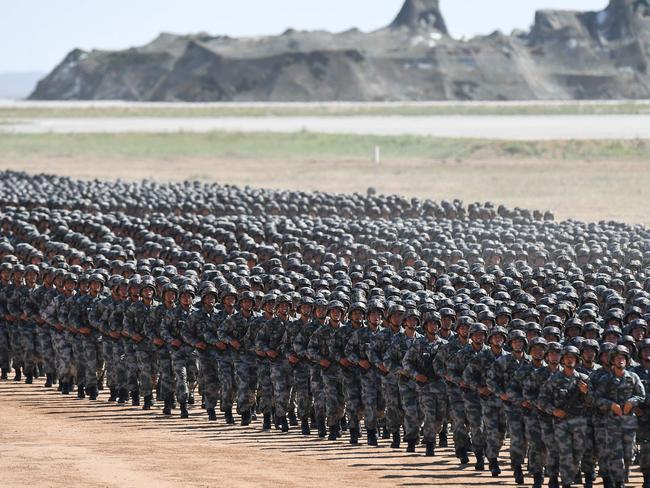
New York-based Asian expert Sean King said he didn’t believe war with mainland China was inevitable, or even likely.
However he said constructive engagement with Beijing, as encouraged in the report, also wasn’t realistic.
“Washington and Beijing are on eventually different sides of just about every major regional flashpoint, for example the South China Sea, North Korea and Taiwan,” he said.
Mr King also pointed out that the election of Philippines President Rodrigo Duterte had complicated America’s South China Sea policy as “Manila’s the only US treaty ally among the claimants.”
“We had been, until Duterte assumed office, Manila’s plus-one at the South China Sea table,” he said.
Mr King also questioned the alliance between Beijing and Pyongyang.
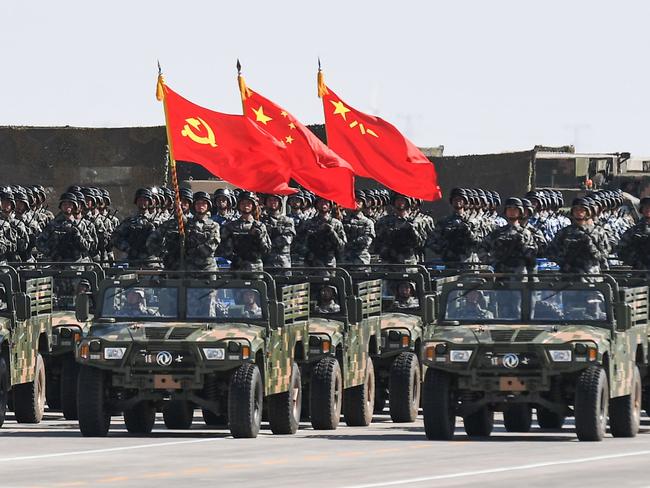
“Beijing and Pyongyang aren’t allies per se,” he said.
“Rather, Beijing is Pyongyang’s chief enabler and guarantor of last resort. They have a dysfunctionally symbiotic relationship that serves both unelected, illiberal regimes’ purposes for now but at a tremendous cost to the North Korean people and regional security.”
Mr King said he had no issue with US President Donald Trump’s speech at the UN last month where he threatened to totally destroy North Korea, but said he should now move on.
“Any protracted war of words with Kim only makes this into even more of a bilateral Washington-Pyongyang dispute than it already is which is exactly what the North wants,” he said.
Mr King stressed the US now needed to put Seoul front and centre and build up its ally at every turn.



